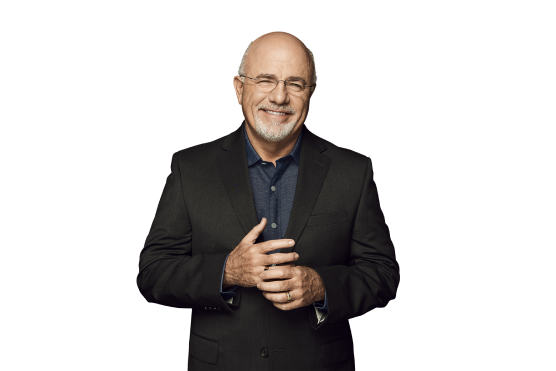What Insurance Does
Dave Ramsey Recommend?

I recommend Zander Insurance from experience. I know they are a principled, debt free company offering insurance programs directly in line with my recommendations.
- Dave Ramsey




What Dave Ramsey Recommends for Auto Insurance
Auto insurance is legally required if you have a vehicle, but merely meeting your state's coverage requirements won't fully protect you. Dave Ramsey recommends having full coverage that will better protect you.
Deductible: Highest Available
A deductible is the amount that you pay before your insurer begins paying on a covered claim.
Dave recommends the highest available deductible. The allowed deductible may vary by policy, but it's often $1,000. You should be able to cover that if you have a $1,000 emergency fund in place.
A higher deductible will significantly lower your auto insurance premiums. It'll also keep policy premiums from increasing, or the policy being outright canceled, because of small claims.
Liability Coverage: Minimum $500,000
Liability coverage protects against “at-fault” accidents, where a third party might sue you over injuries and/or property damage. Legal fees and a settlement can be expensive.
Dave recommends at least $500,000 in liability coverage, and you may want more if you have any assets of note. He mentions that drivers without any assets could consider a lower limit. Any lawsuit exceeding the limit could result in wage garnishing and cause cash flow issues, though.
Comprehensive and Collision Coverage: Both
Collision coverage protects against vehicle damage that occurs during multi-vehicle accidents. Comprehensive coverage protects against vehicle damage occurring during other incidents.
Dave usually recommends full coverage for car insurance, which includes both comprehensive coverage and collision coverage. These are often purchased together since they provide similar protections, but are actually distinct coverages.
If you drive an older vehicle and could pay cash to replace it (e.g. have 3-6 months of expenses saved), you could consider forgoing comprehensive and collision. The premium savings and protection value should be considered on a case-by-case basis for older cars.
Gap Coverage: Only If Required
Gap coverage protects against the difference between a loan or lease's balance, and the depreciated value for your vehicle. Comprehensive and collision only protect up to the value of your vehicle, and this coverage fills that gap.
If you followed Dave's advice, you would've paid cash for your vehicle. Since you don't have a loan or lease, there's no need for gap coverage in this case.
If you did finance or lease your vehicle, lenders often require gap coverage and you'll have to carry it if required. If you're able to forgo the coverage, however, Dave recommends that drivers at least consider dropping gap coverage and putting the premium savings toward paying off their vehicle loan earlier.
Filing Claims: Only When Appropriate
Frequently filing insurance claims can cause your premiums to increase when a policy renews, and the increase may eventually be more than the value of the claim.
You certainly should file an insurance claim when it makes sense to do so, but it might not make sense for a small claim where you'll only get a few hundred dollars. Dave recommends using your $1,000 emergency for small claims, and only filing for larger claims.
You can read more information about what Dave recommends for term life insurance, IDT theft protection, home insurance, and disability insurance.